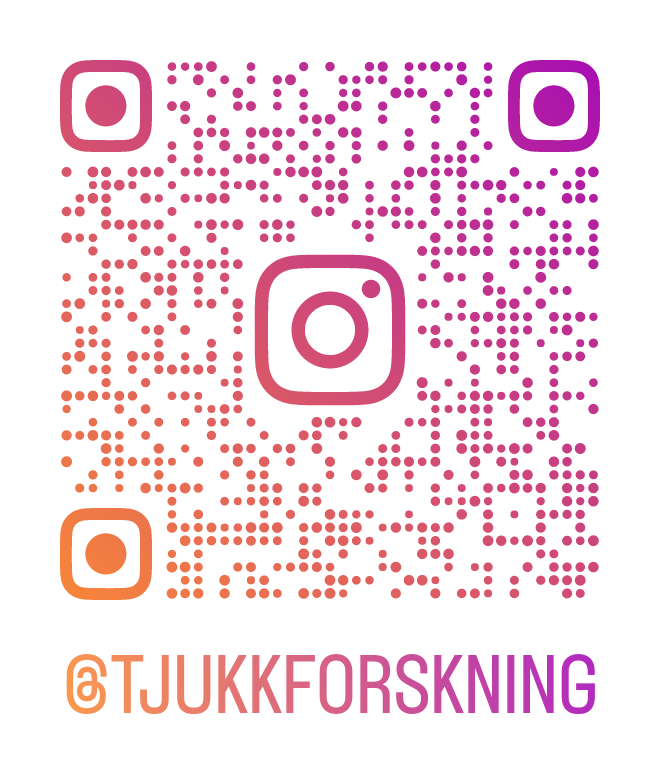A fatter gender and sexuality research
SKOK’s new PhD candidate, Sunniva Árja Tobiasen, will research gender and sexuality norms and how expectations of sexuality and gender have a bodily dimension.

Main content
What is our PhD project about?
In my project, I will investigate gender and sexuality norms with a particular focus on fat bodies. Such norms can “hit” different bodies in various ways. For instance: If you are to picture a sexual person who experiences sexual attraction and who is sexually active, what does this person look like? Does the person have a specific age, body size or shape, skin colour or functional ability? These presumptions about someone’s sexuality depend on context and can tell us something about what or who is seen as adhering to the norm.
I plan to interview fat people and talk to them about what being fat means for how they experience their own sexuality and gender. I also want to investigate the importance of language. How does it affect you as a person when there’s no neutral way in which to talk about your body? We have the medical terms “overweight” and “obesity”, as well as terms like “fat”, which can have a negative association.
I’m interested in which terms and words are being used and what this usage means in one’s own experience of being a sexual human being. How does it affect you when the words that exist to describe you have negative or medical connotations?
Fat studies is the research field which critically examines society’s attitudes towards and treatment of fat people, as well as representations of fat people in the public debate and media, amongst other things. I use the word fat intentionally because I want to contribute to neutralizing the negative association. It’s a descriptive word which doesn’t say anything about a person’s health or worth.
What is the background for your choice of topic?
In my master thesis I wrote about compulsory sexuality and asexuality. Compulsory sexuality describes the often-assumed notion that all people are sexual in approximately the same way; that everyone experiences sexual desire and sexual attraction in a similar way. This is of course not the reality.
Asexuality is a sexual identity in the same way as, for instance, heterosexuality or bisexuality. An asexual person is most often defined as someone who experiences little or no sexual attraction to anyone, regardless of gender.
When I worked with this project, I learnt about desexualisation and hypersexualization, which describes how certain groups, based on for instance functional ability, age, race/ethnicity and body size, can experience having their sexuality ridiculed or not taken seriously.
Some groups can also experience that their sexuality is seen as something that needs to be controlled; that they are “dangerous” or “inappropriate” in some way. They can suffer discrimination; for instance by being denied necessary healthcare.
When looking into research on this, I found very little about fat people, and in general, there is a lack of research on fat people in Norway outside of the medical and health science fields. My PhD project is thus a continuation of my interest in and exploration of compulsory sexuality, sexuality norms and the importance of language when it comes to articulating, understanding and communicating one’s own sexuality. I would like to “fatten up” Norwegian gender and sexuality research by employing perspectives and theories from fat studies in my project.
Which methodology do you intend to use?
As a starting point, I plan to interview fat people in Norway. In my interviews, I will emphasize gender, sexual identity, age and race/ethnicity. I will also include functional ability and class if it makes sense, since all these dimensions are represented in existing fat studies.
In addition, I want to explore the ways in which fatness is being understood and described, and how this connects to a person's overall situation. I want to take my time formulating interview questions, since the linguistic dimension is precisely what I want to pay particular attention to in my project. I don’t want to put restrictions on the words or terms my interlocutors will use, and I’m interested in how they will choose to describe themselves.
What makes your research relevant to the public?
There is very little research in Norway and the Norwegian context that simultaneously explores fat people’s experiences about sexuality and gender, while also taking a critical approach. I would like to contribute to establishing fat studies in Norway. There is some research on fat people from medical and health perspectives, and there has been an on-going public debate about fat people, the so-called “obesity epidemic,” the last couple of years.
I want to contribute to discussions about how we talk about fat people, how they talk about themselves, and how we can recognize being fat as a genuine dimension in people’s lives; something we need to consider, and not just as something one should wish to avoid or change.
